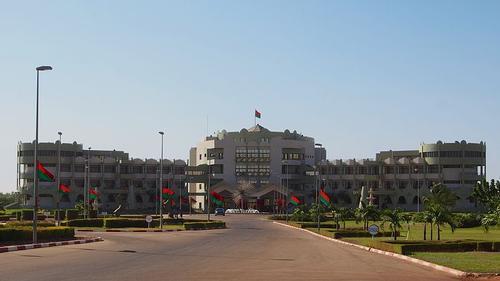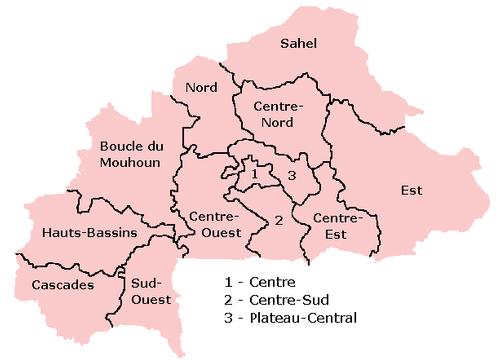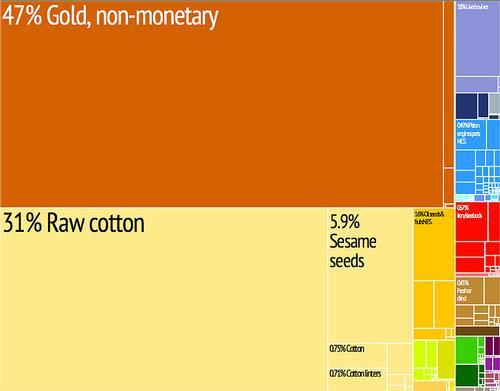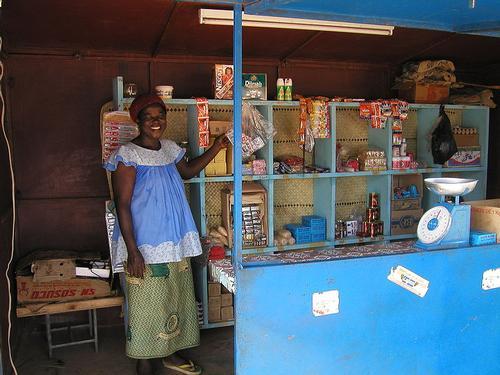BURKINA FASO
Society

Society

Society
State structure

The 1991 Constitution provides for a multiparty system, independent executive, legislative and judicial powers and guarantees freedom of expression. Since a constitutional amendment in 2000, the term of office of the president has been limited to a maximum of two times five years. President Compaoré has not interpreted this law retroactively and participated in the November 2005 presidential elections.
The president appoints the prime minister with the approval of parliament, for a term of five years.
The Burkinabe parliament has only one chamber: the Assemblée Nationale, with 111 seats, 96 of which are allocated on the basis of the provinces and 21 on the national basis. Burkina Faso also has an Ombudsman and, since September 2001, a National Independent Electoral Commission, the CENI.
As part of the administrative decentralization process that started some years ago, the basic law on decentralization was approved at the end of 2004, which provides, among other things, for the establishment of 302 new rural municipalities and the expansion of the 49 existing urban municipalities. The entire territory of Burkina Faso is now divided into "collectivités territoriales". The aim is to establish a fund from which the municipalities can draw for investments in the social and economic field.
Politcs

The national crisis that arose after the unexplained murder of journalist Zongo in late 1998 is over, although the problems that caused the crisis have not all been resolved. The government, led by the young technocrat Yonli, initiated reforms in 2000-2001, of which a new Electoral Law was one of the most important. On the basis of this law, general elections were organized on 5 May 2002, in which the radical opposition also took part and which led to a greater representation of the opposition in parliament. On May 25, 2005, the Elections Act was amended as a result of the new decentralization act.
In addition, CENI carried out a "revision exceptionelle" of the electoral rolls, which resulted in a 40% increase in the number of voters, compared to May 2002. This means that approximately one third of the total population will be registered. The electoral rolls were included on the internet for the first time this year as a sign of transparency in the electoral process. In September 2006, the fifteen members of the CENI were re-elected because the existing mandate had expired.
The opposition is divided and is formed by the "Alternance 2005" parties, "Hermann Yaméogo" coalition, PDP / PS, the ecological party and ADF / RDA.
The current state of affairs is described in the chapter history.
Economy

Burkina Faso is landlocked with an economy that is vulnerable to exogenous factors such as the climate and world oil prices. 31.9% of the gross domestic product (GDP) comes from the primary (agricultural) sector, where cotton and livestock farming are the most important products. The primary sector is the basis of the economy. Approx. 90% of the employed labor force is employed in this sector. The secondary sector contributes approximately 22% to the gross domestic product and the tertiary sector 46.1%. (2017)
Burkina Faso has been pursuing an economic restructuring program since 1991, which, partly due to the devaluation of the FCFA in 1994, has resulted in positive growth figures of 5.7% on average over the period 1995-1999.
Economic growth was 6.4% in 2017.
In an effort to protect farmers from excessive fluctuations in cotton prices, the government will introduce a new cotton pricing mechanism. The price that farmers will then receive for the cotton will be based on an average of the historical and forecast prices on the world market.
The industrial sector is receiving a positive impulse, gold mining is started in the Essakane and Taparko-Boroum mines. These are the first of five to six mines to be opened in the coming years; these developments will most likely lead to an increase in investment. The services sector is also experiencing growth at the moment, mainly due to an increase in national demand.

Efforts to further diversify the economy have so far had little effect: costs for essentials such as transport, water and electricity are high and the education level of the population is very low.
Burkina Faso must make a structural appeal to the donor community to get the budget balanced and to be able to make investments.
Sources
Elmar Landeninformatie
CIA - World Factbook
BBC - Country Profiles
Copyright: Team The World of Info